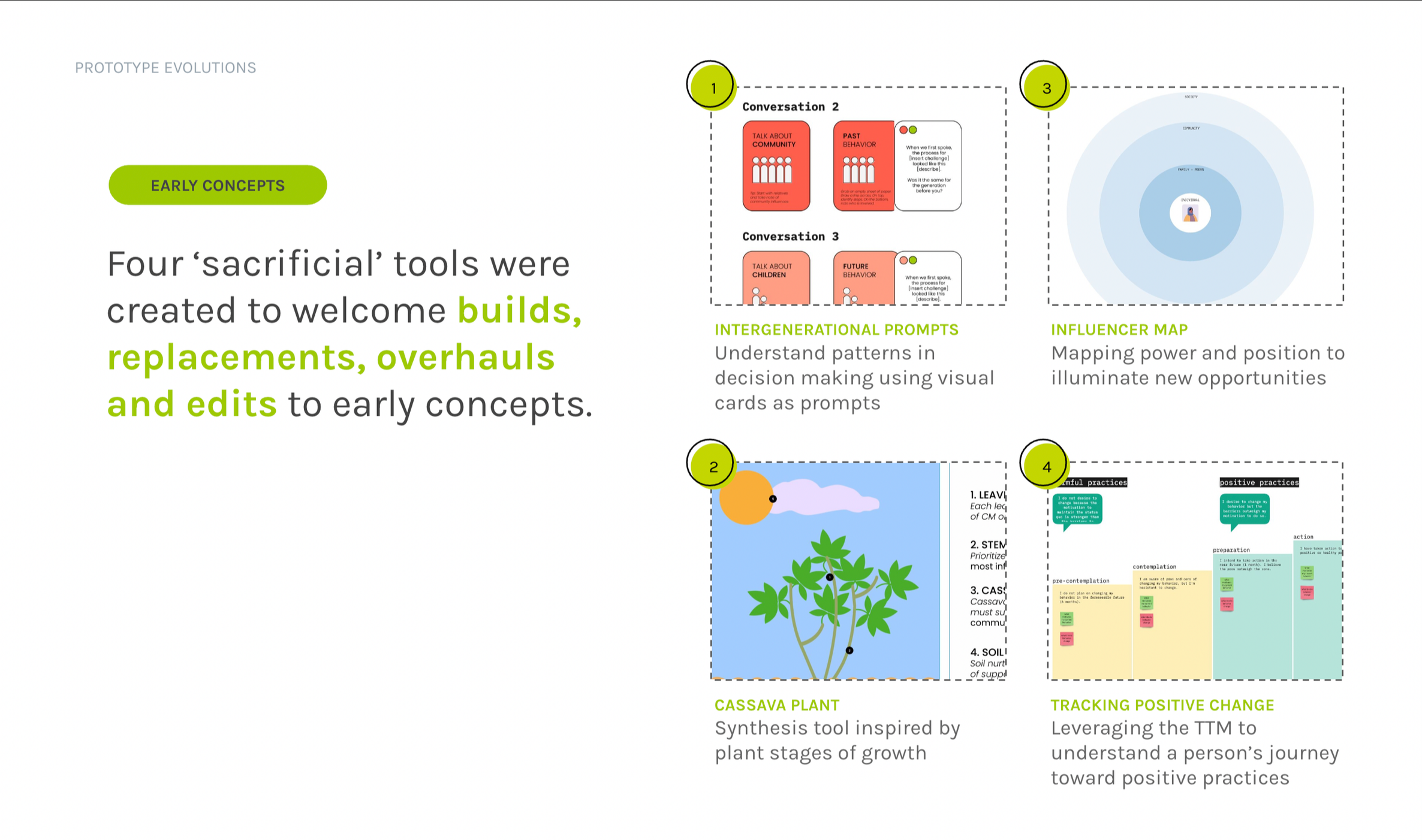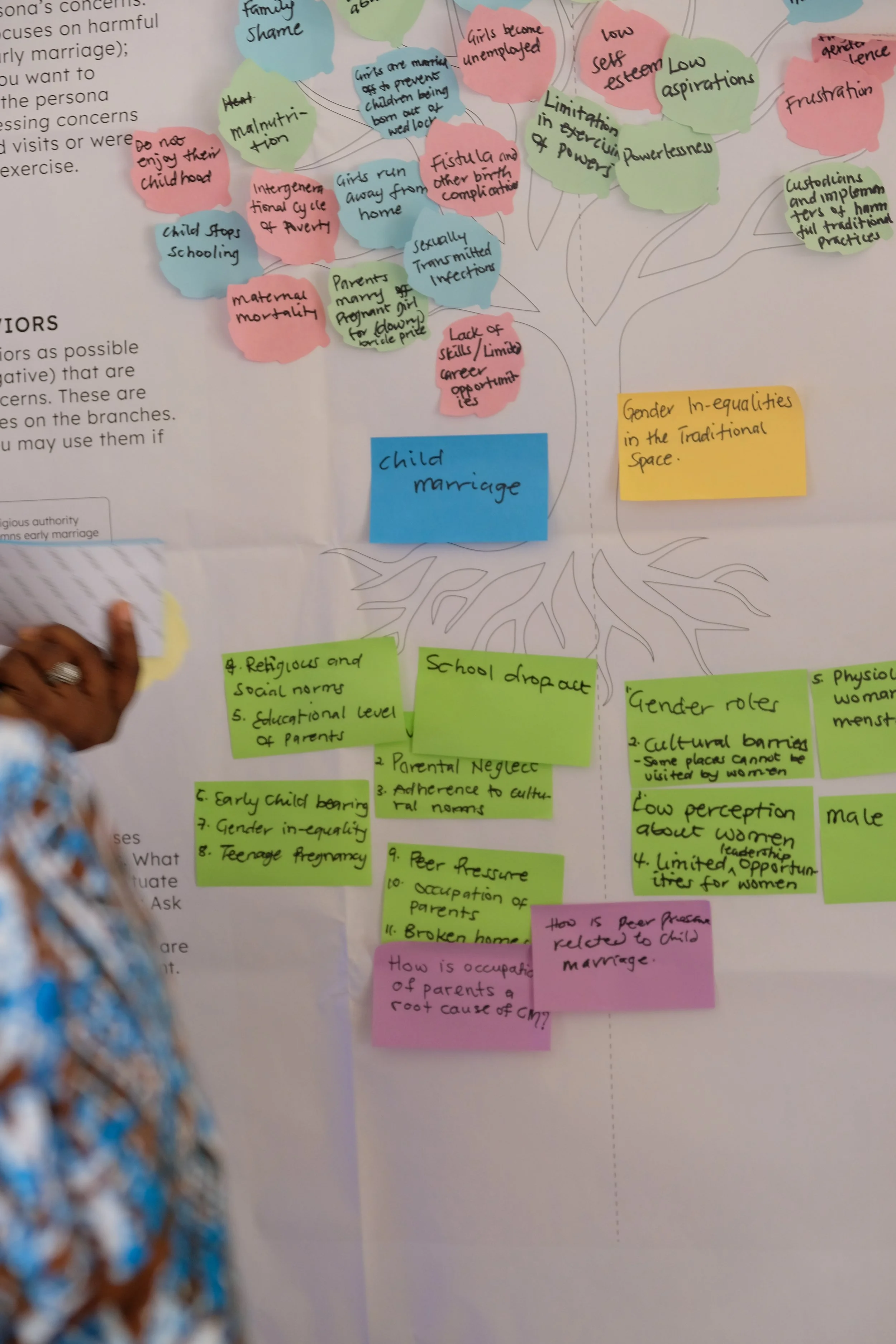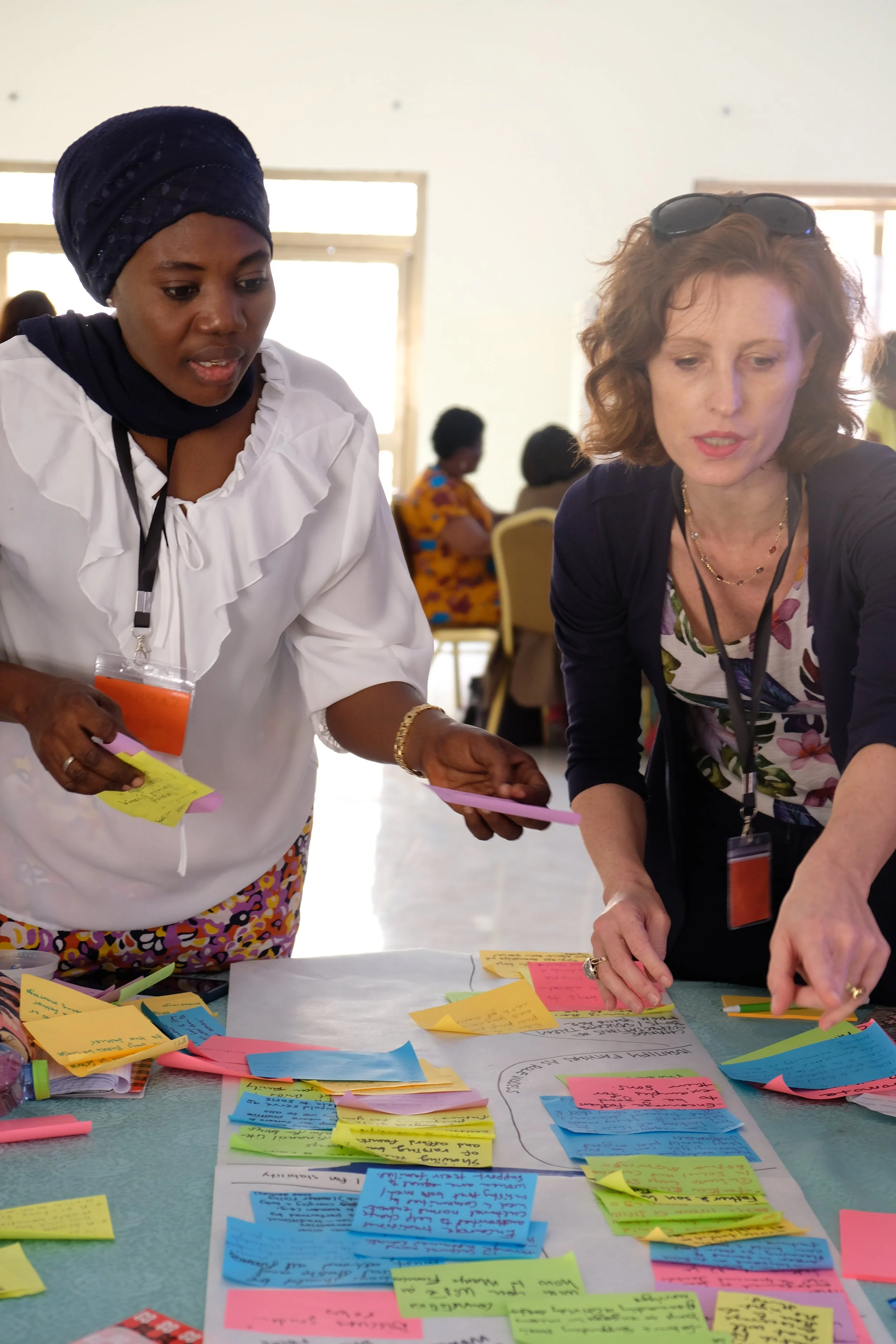
client
UNICEF West and Central African Region
scope
stakeholder interviews
curriculum development
prototype testing
workshop planning
workshop facilitation
toolkit co-creation
role
project lead
research lead
facilitator
writer
designer
challenge
The pace of
change is uneven. While progress has been achieved toward the reduction of female genital mutilation (FGM) and child marriage in the Western and Central Africa Region, the pace of change is stalled or uneven at the local level. The most common interventions to-date focus on awareness building or public declarations, which while critical, do not achieve social change. Correcting behavior without understanding its drivers leads to practices going underground and resistance, and adding more tools and field guides to an overwhelming pile of tasks does not build capacity.
In response, my team set out to consolidate available resources—keeping what works at the field level—and to create new tools that felt culturally resonant, while remaining academically rigorous.
Research tools were tested with implementing partners before co-creation workshops to ensure local experts could validate, edit and improve qualitative tools.
insight
Shift from extractive to participatory forms that encourage storytelling. When sensitive issues are named in research, response and recency bias kicks in. Rather than enter communities with an outsider’s perspective or programmatic agenda, indirect and less extractive forms of interaction are required to create trust. In West Africa, storytelling traditions are embedded in the culture and as such were reflected in the design of participatory activities for a multi-generational and inclusive approach.
Field research in Nigeria using engaging activities. Left: Fathers using storycubes to prompt stories about experiences observed or personally held. Right: Drawing an influence map with a Queen Mother.
solution
Address common drivers to solve sensitive issues. Field research revealed the issues that communities found most urgent—most often, FGM and child marriage did not come up. By examining the drivers behind FGM, child marriage, and the community’s pressing challenges, participants were taught to identify overlaps. Tools were informed by social behavior change models (BDM, SEM, and transtheoretical) in order to unpack the critical drivers of those challenges, identify overlaps between it and harmful practices, and design interventions targeted to address those drivers.
Workshops included 3 days of learning and 2 field visits. Left: Hacking the classic problem tree to identify drivers behind FGM and/org child marriage next to the issues the community finds most pressing. Right: After field research, creative prompts are developed in response to key barriers to address. Participants go through an idea generation sprint, generating 100s of solutions in under an hour before prioritizing concepts for prototyping and testing with community members.
A playbook for community co-creation to address harmful practices. The final playbook provides a consolidated process and relevant tools that responds to the needs of UNICEF program staff and local partners and have been tested for efficacy and clarity over the course of 4 workshops with over 160+ total participants and the inputs of 4 rural communities. The final package (“Common Challenges, Uncommon Solutions”) is available in three languages (English, French and Portuguese) and includes a roadmap, guidebook, workbook and curriculum. Additional successes:
The resource packaged has been used in five countries to-date: Nigeria, Ghana, Burkina Faso, Guinea Bissau and the Gambia.
Participants involved in early workshops have gone on to run trainings on the materials, especially the participatory research tools, reaching 150+ enumerators.
An intervention concept generated during a workshop in Ghana has been piloted in 100 communities.





